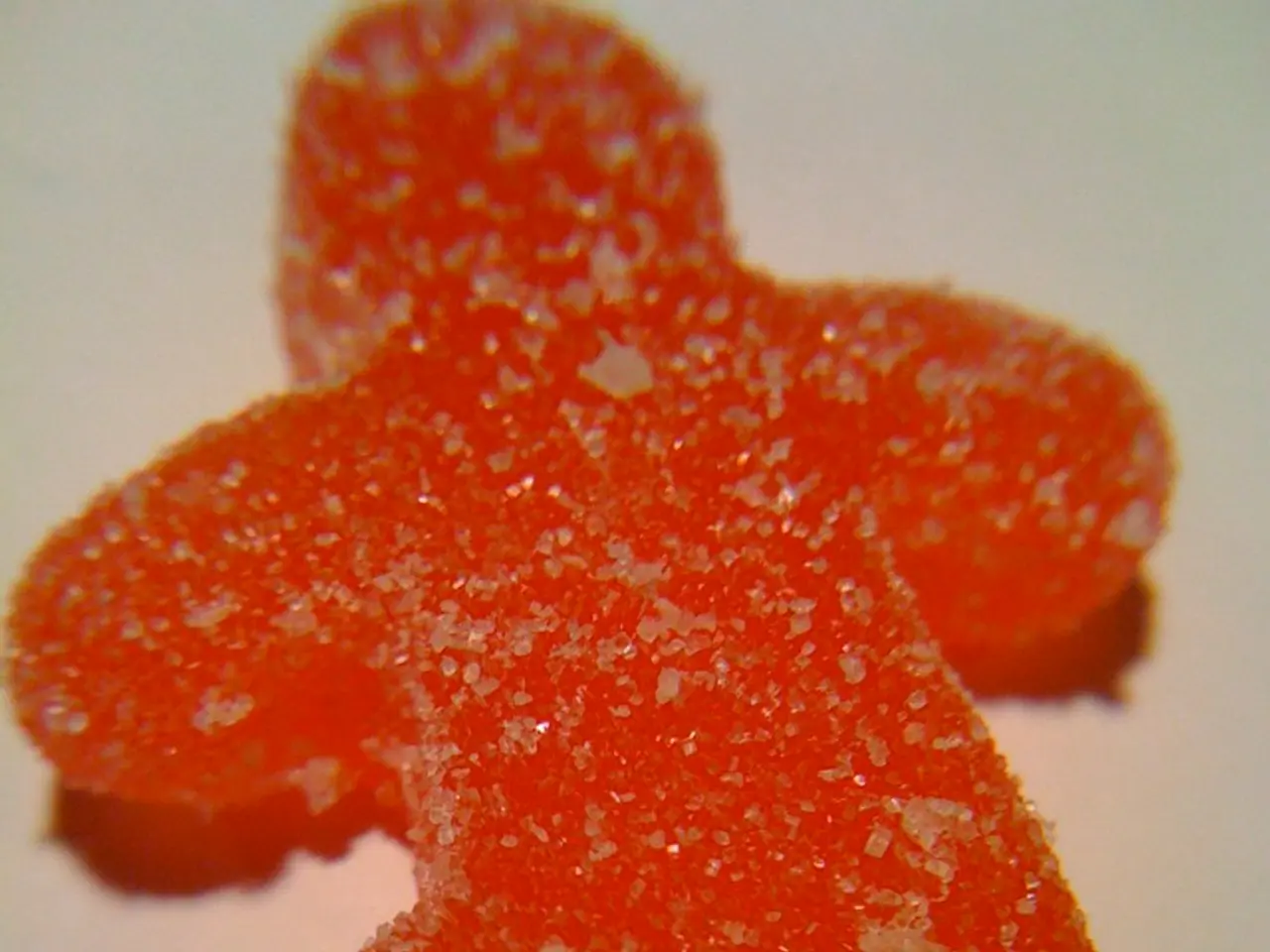Gum Chewing: Is It Harmful?
Artificial Sweeteners in Chewing Gum: Weighing the Pros and Cons
Artificial sweeteners in chewing gum have become popular choices for those seeking a sugar-free alternative. However, their long-term effects and potential risks have sparked debate and ongoing research.
Aspartame
Aspartame, a common artificial sweetener, has been linked to various health concerns. Research suggests that it might inflame blood vessels and increase the risk of ischemic stroke, and has been associated with symptoms such as seizures, nausea, depression, and weight gain. Chronic illnesses like Alzheimer's, Parkinson's disease, and epilepsy have been mentioned in some studies. Despite numerous reviews concluding no link between aspartame and cancer, concerns persist.
Erythritol
Erythritol, another artificial sweetener, is generally considered safe and has been promoted for its potential health benefits, such as managing oral health by inhibiting the growth of bacteria responsible for cavities. However, recent studies have raised concerns about its impact on cardiovascular health, suggesting it may increase sensitivity to blood clotting signals, potentially doubling the risk of cardiovascular events like heart attacks and strokes. Erythritol can also cause gastrointestinal discomfort, such as gas and bloating, due to its fermentation by gut bacteria.
General Considerations
Both aspartame and erythritol have been implicated in altering gut bacteria, which can affect metabolic health and glucose regulation. In terms of dental health, while xylitol (a natural sweetener) is beneficial for oral health, aspartame does not offer similar benefits. Erythritol, on the other hand, may help manage oral health by preventing tooth decay.
Chewing sugar-free gum can be beneficial for people with dry mouth as it can help stimulate saliva production. However, sugar alcohols, found in some sugar-free gums, can lead to gastrointestinal symptoms such as diarrhea and flatulence in some people. The frequency of chewing sugar-free gum may depend on the type of artificial sweetener it contains, and seeking advice from a dentist is recommended.
Research from 2008 found that chewing sugar-free gum for 20 minutes after meals may reduce the risk of cavities. However, long-term use of beverages with artificial sweeteners is associated with cardiovascular disease and type 2 diabetes, but short-term use for cavity prevention may not have such effects.
The use of artificial sweeteners and sugar alcohols in chewing gum is controversial. The American Dental Association (ADA) seals its approval on chewing gum varieties that have been proven safe and effective for dental health. Saliva, produced during chewing, helps clear away the acid from certain foods and beverages that soften tooth enamel.
Despite regulatory agencies regarding artificial sweeteners as safe, some health experts continue to have concerns about the safety of certain artificial sweeteners. A study involving 1,157 individuals found elevated levels of the sugar alcohol erythritol linked to a higher rate of cardiovascular disease. Some research has found a link between a higher intake of artificial sweeteners (such as aspartame and acesulfame-K) and an increased cancer risk.
In conclusion, while artificial sweeteners in chewing gum offer a sugar-free alternative, they carry potential risks and long-term effects that warrant caution. It is advisable to consult with healthcare professionals for personalized advice on consuming these sweeteners.







